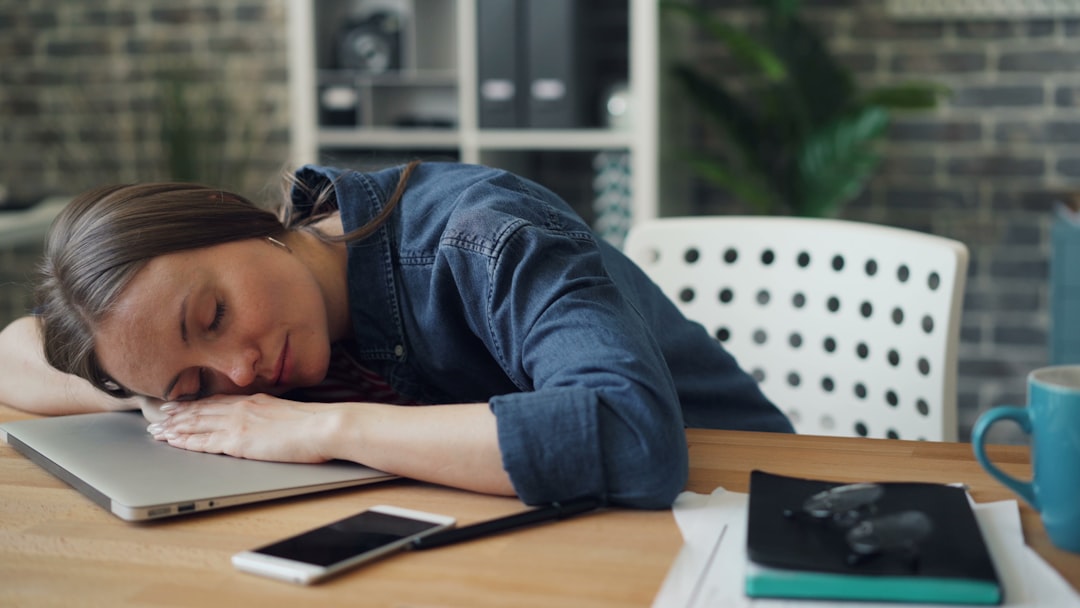Do you ever wake up feeling like you haven’t slept at all, even after spending hours in bed? You’re not alone. In our fast-paced world, quality sleep often feels like a luxury, not a necessity. Recent statistics show that the average person gets less than 7 hours of sleep per night, and a staggering 35% of U.S. adults report insufficient sleep. But what if I told you there’s a “golden routine” that could effectively double your sleep efficiency, making every hour of rest count for more? It’s not about sleeping longer, but smarter. Let’s dive into the cutting-edge science and trends of 2025 that are revolutionizing how we approach sleep. Get ready to reclaim your nights and supercharge your days! 😊
The Current State of Sleep: Trends and Statistics for 2025 🤔
Before we build our golden routine, let’s understand the landscape of sleep in 2025. The global sleep economy hit an impressive USD 585 billion in 2024, reflecting a growing demand for sleep-enhancing products and services. This surge is partly driven by widespread sleep issues: approximately 70 million adults in the U.S. grapple with a sleep disorder, and 25% of survey respondents have been diagnosed with one.
The impact of poor sleep extends far beyond feeling groggy. A National Sleep Foundation survey revealed that 70% of adults report poor sleep quality directly impairs their general work productivity. Furthermore, 58% of workers admit that insufficient sleep negatively affects their productivity. We’re also seeing a rise in “sleep anxiety,” particularly among younger generations, with nearly 40% of Gen Z adults reporting sleep-related anxiety at least three times a week.
The global sleep tech devices market is projected to reach an astounding USD 134.60 billion by 2034, growing at a CAGR of 18.46% from 2025 to 2034. This highlights a massive shift towards technological solutions for better rest!
Building Your Golden Sleep Routine: Science-Backed Strategies 📊
Optimizing your sleep isn’t about magic; it’s about consistency and understanding your body’s natural rhythms. Here’s how to craft a routine that maximizes your sleep efficiency, drawing from the latest research and expert recommendations.
Pillar 1: Consistent Sleep Schedule
This is the cornerstone of effective sleep. Going to bed and waking up at the same time every day, even on weekends, profoundly reinforces your body’s circadian rhythm. This consistency helps regulate hormone release, digestion, and mood, leading to more restorative sleep cycles. If you need to shift your schedule, do it gradually, by no more than an hour or two at a time.
Pillar 2: Optimize Your Sleep Environment
Your bedroom should be a sanctuary for sleep. Keep it cool, dark, and quiet. The optimal temperature range for sleep is generally between 60-67°F (15.5-19.4°C). Consider blackout curtains, earplugs, or a white noise machine to minimize disruptions. Ensure your mattress and pillows provide adequate comfort and support for your needs.
Pillar 3: The Power of a Pre-Sleep Routine
Signal to your body that it’s time to wind down with a consistent nightly ritual. Aim for a 30-60 minute device-free buffer before bed. Engage in calming activities such as reading a physical book, listening to soft music, light stretching, or practicing relaxation techniques like meditation or deep breathing. A warm bath or shower before bed can also help, as the subsequent drop in body temperature aids in sleep onset.
Pillar 4: Mindful Daytime Habits
What you do during the day significantly impacts your night. Get plenty of daylight exposure, especially in the morning, to regulate your circadian rhythm. Incorporate regular physical activity, but avoid intense exercise too close to bedtime. Pay attention to your diet: avoid heavy, fatty, or spicy meals before bed, and limit caffeine intake at least 8.8 hours before sleep. Alcohol, while it may initially make you feel sleepy, can disrupt sleep later in the night.
If you find yourself tossing and turning for more than 20 minutes, get out of bed and do something calming in low light until you feel sleepy again. This helps reinforce the mental connection between your bed and sleep, preventing sleep anxiety.
Key Checkpoints: Remember These Essentials! 📌
You’ve come this far, and I know there’s a lot of information to absorb. So, let’s recap the most crucial takeaways. Keep these three points in mind as you embark on your journey to better sleep.
-
✅
Consistency is King (or Queen)!
Adhere to a strict sleep and wake-up schedule, even on weekends, to regulate your body’s natural clock. -
✅
Optimize Your Environment & Routine
Create a cool, dark, quiet bedroom and establish a calming, device-free pre-sleep ritual. -
✅
Daytime Habits Matter
Prioritize morning light exposure, regular exercise, and a mindful diet while limiting caffeine and alcohol.
Emerging Sleep Technologies and Trends in 2025 👩💼👨💻
The world of sleep is constantly evolving, with technology playing a significant role in helping us achieve better rest. The “AI Sleep Revolution” is a major trend for 2025, offering personalized sleep insights and AI-powered coaching. Smart sleep products, from mattresses to thermostats, are integrating AI to deliver data-driven, personalized sleep experiences.
Wearable devices continue to advance, with smartwatches like the Apple Watch Series 11 and smart rings like the Oura Ring and WHOOP 5.0 monitoring physiological signals to estimate sleep stages and provide insights. For more precise data, EEG-based devices like Elemind are emerging, offering more reliable tracking of deep and REM sleep by measuring brain activity.
Beyond gadgets, “sleep tourism” is gaining traction, with hotels offering specialized sleep programs, premium bedding, and even sleep coaching. A 2024 survey found that 91% of frequent travelers are willing to pay up to 10% more for sleep-enhancing accommodations. Even “sleep divorce,” where couples opt for separate sleeping arrangements to improve rest, is becoming more common, with 35% of Americans occasionally or consistently sleeping separately from their partner.
Experts are increasingly advocating for “sleep as a practice” – a mindful, evolving process rather than a fixed achievement. This shift encourages a holistic approach to sleep wellness, much like diet or exercise.
Real-World Impact: The Power of Optimized Sleep 📚
Let’s consider Sarah, a marketing professional who used to burn the midnight oil, believing it boosted her productivity. She often felt sluggish, irritable, and struggled with focus. After learning about sleep efficiency, she decided to implement a golden routine.
Sarah’s Situation Before
- Sleep Duration: 5-6 hours, inconsistent bedtime.
- Morning: Hit snooze multiple times, felt tired and unmotivated.
- Work: Difficulty concentrating, frequent mistakes, easily stressed.
- Evening: Late-night screen time, heavy meals, struggled to fall asleep.
Implementing the Golden Routine
1) Fixed Bedtime & Wake-up: Sarah committed to sleeping from 10:30 PM to 6:30 AM daily, even on weekends.
2) Wind-Down Ritual: She started a 45-minute pre-sleep routine: warm bath, reading, and light stretching, with all electronics off.
3) Bedroom Optimization: She invested in blackout curtains and set her thermostat to 65°F.
4) Daytime Adjustments: Morning walks for daylight exposure, consistent exercise, and no caffeine after 2 PM.
Final Results (After 3 Months)
– Improved Sleep Quality: Sarah now falls asleep faster and experiences fewer awakenings, feeling genuinely refreshed.
– Enhanced Productivity: Her focus, decision-making, and creativity at work have significantly improved, leading to better performance and reduced stress.
Sarah’s story isn’t unique. By consciously adopting a golden sleep routine, she transformed her sleep from a source of frustration into a powerful tool for overall well-being and success. It shows that even small, consistent changes can lead to profound improvements in your life.

Wrapping Up: Your Path to Restorative Sleep 📝
The journey to doubling your sleep efficiency is an investment in your health, productivity, and overall happiness. By embracing a consistent schedule, optimizing your environment, establishing a calming pre-sleep routine, and maintaining healthy daytime habits, you’re not just sleeping; you’re actively restoring and preparing your mind and body for peak performance.
Remember, sleep is not a luxury; it’s a fundamental pillar of health. In 2025, with advancements in sleep tech and a growing understanding of sleep’s critical role, there’s never been a better time to prioritize your rest. What steps will you take tonight to start your golden routine? Share your thoughts and questions in the comments below! 😊
Golden Sleep Routine: Key Takeaways
Frequently Asked Questions ❓
